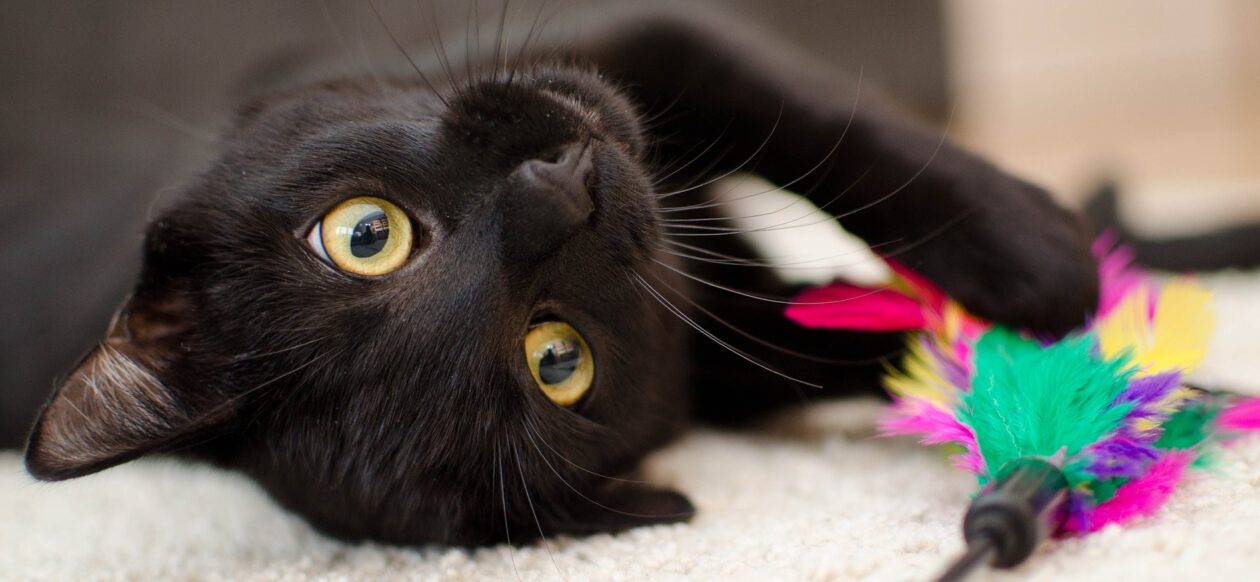Was your New Year’s resolution this year to quit smoking? If it wasn’t and you’re a smoker, it may be time to quit smoking for your pets’ sake. An increasing number of research studies show that animals face significant health risks exposed to the toxins and carcinogens in second and third-hand smoke. And numerous research studies have revealed that cats exposed to second-hand cigarette smoke causes cancer in cats.
Toxic Chemicals in Cigarette Smoke
Cigarette smoke contains 4,000 chemicals including hydrogen cyanide, formaldehyde, arsenic, ammonia and urea among them. Second-hand smoke is considered the smoke that is exhaled or comes from the cigarette itself and can be inhaled by non-smokers including our pets. Third-hand smoke is the residue from smoke and smoke particles that can be found on clothing, furniture, bed linens, skin, and fur even after the air is clear of smoke. Cats get into problems with third-hand smoke when they lick smoke and particles from smoke off their fur.
Health Risks Associated with Cigarette Smoke for Cats
A Harvard Medical School study published in the Journal of Pediatrics in 2009 revealed the serious health risks associated with third-hand smoke. The data in the study identified the carcinogens in third-hand smoke including hydrogen cyanide, butane, toluene, arsenic, lead, carbon monoxide and polonium-210, a highly radioactive carcinogen, amongst others. Eleven of the compounds are highly carcinogenic. Cats grooming habits make third-hand smoke a compounding and serious problem because they ingest the cancer-causing carcinogens that build up on their fur. For this reason, mouth cancer such as Squamous Cell Carcinoma (SCC) can result. Second-hand smoking also correlates to malignant lymphoma development in cats.
Tobacco Smoke and Second-Hand Smoke Causes Cancer in Cats
An estimated 50,000 Americans die every year from second-hand smoke. And according to the Denver-based Morris Animal Foundation, a leader in funding scientific research studies for pet cancer research since 1962, cancer kills more cats today than any other disease. Research studies conducted at Tufts University’s School of Veterinary Medicine in Massachusetts, along with several other universities, show that second-hand smoke can cause malignant lymphoma in cats, nasal and pulmonary cancer, fatal mouth cancer, and allergic reactions and inflammation. Research studies at Tufts showed that repeated exposure to tobacco smoke doubled a cat’s probability of getting cancer. The studies also confirmed cats who live with a smoker for more than five years, have a four-fold increased risk of getting cancer.
The ASPCA lists tobacco smoke as a toxin dangerous to pets and the ASPCA Poison Control Center states, “environmental tobacco smoke has been shown to contain numerous cancer-causing compounds for animals, making it hazardous for animals to breathe secondhand smoke.” The ASPCA urges people not to subject their pets to smoke of any kind. The American Legacy Foundation, a non-profit organization dedicated to encouraging smokers to quit, asks smokers to quit for the sake of their pets. The 2006 Surgeon General’s Report linked smoking with greater risk to pet’s health. And cats are more sensitive and susceptible to tobacco smoke than dogs, so it is even more important to safeguard cats.
Quit Smoking for Your Pet’s Sake
The ASPCA recommends that smokers smoke outside when they are smoking, to lessen the harmful effects of second-hand smoke. But smokers will still be subjecting their pets to the toxic chemicals in third-hand smoke through their clothing, skin, hair and furniture.
To help smokers quit smoking there’s a national campaign called Become An Ex, and there is a community of smokers who are quitting just for their pets called Quitting For Our Pets. The good news is that people are becoming more aware of how harmful and potentially deadly tobacco smoke is for pets. A study published in Tobacco Control done by the Henry Ford Health System in Detroit, revealed that 28.4% of smokers who participated in an online survey said learning that second-hand smoke was bad for their pet’s health would motivate them to quit.
Symptoms of Cancer in Cats
If you’re concerned about your cat, the symptoms to be on the lookout for with cancer are trouble eating or breathing, drooling, weight loss, vomiting, coughing, nasal discharge, bleeding and sneezing. Avoid subjecting your cat to smoke of any kind and remember cats are especially sensitive and susceptible to tobacco smoke.
Credits: Photos by Pixabay, www.pixabay.com



